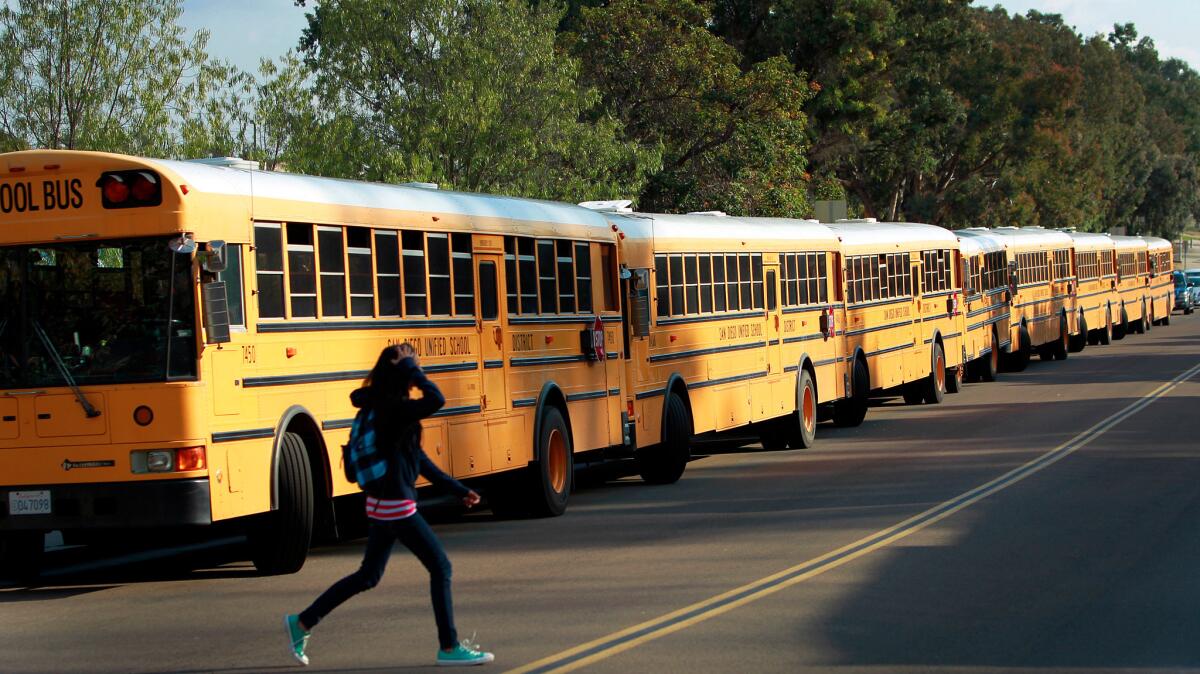Opinion: Mailbag: Readers take notes on school issues

- Share via
It’s August. So naturally, back-to-school stories are in full supply. With education coverage this week including prep classes, charter school issues, graduation rates, how to choose a school, and even summer vacation, Times readers took extensive notes.
Among the responses to a Times editorial on credit- recovery courses and a column on “shorter summers”:
—Sara Lessley, Letters to the Editor department
Diane Rabinowitz in
Los Angeles offers her experience:
As an LAUSD teacher who mentored credit recovery students this past year, I can state that Edgenuity math credit recovery courses are extremely rigorous, more so even than some of our traditional classes.
Relentless requirements — students must pass 5 quizzes in each of 10 units, 10 unit tests plus a cumulative exam — ensure that students possess a command of the material.
The credit recovery option of Edgenuity is called “prescriptive” — precisely because it’s designed to uncover what each student did not master the first time, and allow (support) them to go back and review the topic until they master it.
If there’s any fault with Edgenuity or LAUSD, I would argue that the quality and number of questions determining mastery must be verified.
Joan Davidson in Palos Verdes Estates sees it
differently:
The fact that LAUSD has relied heavily on credit recovery online courses to graduate students is abhorrent and insulting.
Is this the best that they can do? Sit children in front of a computer screen because they have failed them?
Use the funding as it was intended: to hire great teachers and actually use textbooks and create dialogue leading to understanding of the subject.
Passing students to graduate from high school without the knowledge they need to succeed in the real world is failing everyone.
On another education angle, Ben Miles in
Huntington Beach muses:
Both as a student and as a teacher I’ve had a long and loving relationship with summer break.
Iconic and much appreciated, the summer break is not essential, however; nor is it immutable.
Schools must adapt to the dictates of human development as well as to the needs of the Information Age.
Research suggests that shorter (weeks instead of months) breaks, occurring more often, are consistent with greater concept retention and less classroom time spent on catch-up and review.
And from San Juan
Capistrano, Sam
McCarver asks:
Common sense is to set different starting and ending dates for grade school kids than for high schools.
Let our young kids enjoy every day of their summers outdoors, just as you enjoyed summer when you were a kid — instead of sitting in classrooms in 95-degree weather.
Give youngsters school schedules fitting for their ages and needs.
They’ll be in high school soon enough.
Don’t rush them. Please.
Follow the Opinion section on Twitter @latimesopinion and Facebook
A cure for the common opinion
Get thought-provoking perspectives with our weekly newsletter.
You may occasionally receive promotional content from the Los Angeles Times.






